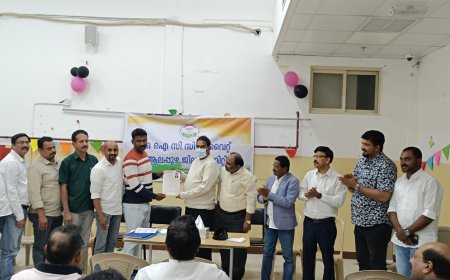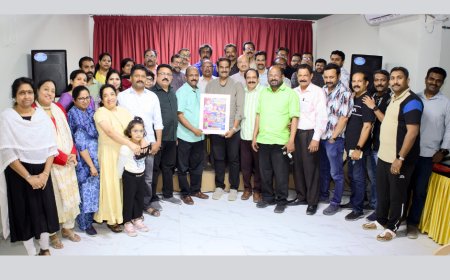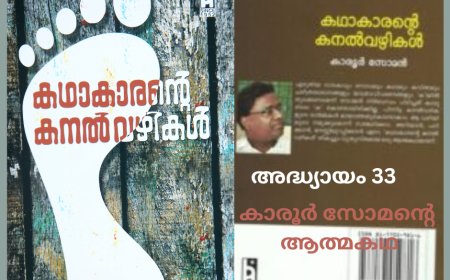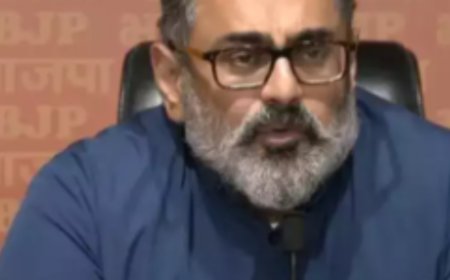US journalist sues Indian government for revoking overseas citizenship
An American journalist has initiated legal action against the Indian government after his Overseas Citizen of India (OCI) was unilaterally revoked following the publication of a story critical of a prominent Indian businessman. According to The Guardian, Raphael Satter, a cybersecurity journalist for Reuters based in the US, received a letter from India’s Ministry of Home Affairs in December 2023, accusing him of “maliciously” tarnishing India’s reputation. The letter informed Satter that his OCI status had been revoked. Although the government has not provided any reasons behind the cancellation, Raphael’s lawyers told The Guardian that it coincided with a defamation case against him in India, linked to his Reuters investigation titled ‘How an Indian startup hacked the world.’ The report alleged that an Indian cybersecurity firm, Appin, had developed into a “hack-for-hire powerhouse” targeting high-profile individuals worldwide. Appin’s co-founder Rajat Khare denied involvement in any cyber-mercenary business, and his US legal representatives at Clare Locke stated that Khare “has never operated or supported, and certainly did not create, any illegal ‘hack-for-hire’ industry in India or anywhere else.” The Guardian also states that Raphael faced intimidation during his investigation into Appin and Khare. His court petition states, “The petitioner and his employer, Reuters, began receiving threats from individuals linked to a company called Appin, which has hacked organisations in India and abroad.” He further claimed that one of these individuals hinted at possible “diplomatic action” should he continue his reporting. Khare had also actively pursued legal action against news organisations that have covered Appin. An investigation by Reporters Without Borders found that at least 15 media outlets received legal notices, and five were subjected to legal proceedings. Among them were The New Yorker and The Sunday Times. Reporters Without Borders described the scale of these legal actions as “unprecedented.” On the same day as the defamation case, Satter received notice of his OCI revocation. Meanwhile, a Delhi court issued an injunction against his report, leading to its temporary removal. The article was reinstated 10 months later.The first hearing for Raphael’s case took place in Delhi this week. The Indian government has until May 22 to justify its decision in court. According to The Guardian, during Prime Minister Narendra Modi’s administration, more than 100 OCI cards have been revoked. Among them was journalist Aatish Taseer, whose OCI was cancelled following his critical article about the Prime Minister in Time magazine.OCI status grants foreign nationals of Indian origin or spouses of Indian citizens visa-free travel, residency, and employment in India. Raphael acquired OCI status through his marriage. In a statement to The Guardian, Raphael said that the Indian government’s decision “effectively cut me off from members of my family and a country I hold in great affection and respect.” He insisted that the revocation was a “mistake or a misunderstanding” and stated that he had only taken legal action after his appeal to the government went unanswered for more than a year. “I am confident that once the integrity of my journalism is demonstrated before the Indian courts and the true and correct facts are brought to the fore, the Ministry of Home Affairs will see fit to restore my OCI card,” he said.

AN American journalist has initiated legal action against the Indian government after his Overseas Citizen of India (OCI) was unilaterally revoked following the publication of a story critical of a prominent Indian businessman.
According to The Guardian, Raphael Satter, a cybersecurity journalist for Reuters based in the US, received a letter from India’s Ministry of Home Affairs in December 2023, accusing him of “maliciously” tarnishing India’s reputation. The letter informed Satter that his OCI status had been revoked.
Although the government has not provided any reasons behind the cancellation, Raphael’s lawyers told The Guardian that it coincided with a defamation case against him in India, linked to his Reuters investigation titled ‘How an Indian startup hacked the world.’
The report alleged that an Indian cybersecurity firm, Appin, had developed into a “hack-for-hire powerhouse” targeting high-profile individuals worldwide. Appin’s co-founder Rajat Khare denied involvement in any cyber-mercenary business, and his US legal representatives at Clare Locke stated that Khare “has never operated or supported, and certainly did not create, any illegal ‘hack-for-hire’ industry in India or anywhere else.”
The Guardian also states that Raphael faced intimidation during his investigation into Appin and Khare. His court petition states, “The petitioner and his employer, Reuters, began receiving threats from individuals linked to a company called Appin, which has hacked organisations in India and abroad.”
He further claimed that one of these individuals hinted at possible “diplomatic action” should he continue his reporting.
Khare had also actively pursued legal action against news organisations that have covered Appin. An investigation by Reporters Without Borders found that at least 15 media outlets received legal notices, and five were subjected to legal proceedings. Among them were The New Yorker and The Sunday Times. Reporters Without Borders described the scale of these legal actions as “unprecedented.”
On the same day as the defamation case, Satter received notice of his OCI revocation. Meanwhile, a Delhi court issued an injunction against his report, leading to its temporary removal. The article was reinstated 10 months later.
The first hearing for Raphael’s case took place in Delhi this week. The Indian government has until May 22 to justify its decision in court. According to The Guardian, during Prime Minister Narendra Modi’s administration, more than 100 OCI cards have been revoked. Among them was journalist Aatish Taseer, whose OCI was cancelled following his critical article about the Prime Minister in Time magazine.
OCI status grants foreign nationals of Indian origin or spouses of Indian citizens visa-free travel, residency, and employment in India. Raphael acquired OCI status through his marriage. In a statement to The Guardian, Raphael said that the Indian government’s decision “effectively cut me off from members of my family and a country I hold in great affection and respect.”
He insisted that the revocation was a “mistake or a misunderstanding” and stated that he had only taken legal action after his appeal to the government went unanswered for more than a year. “I am confident that once the integrity of my journalism is demonstrated before the Indian courts and the true and correct facts are brought to the fore, the Ministry of Home Affairs will see fit to restore my OCI card,” he said.







































































